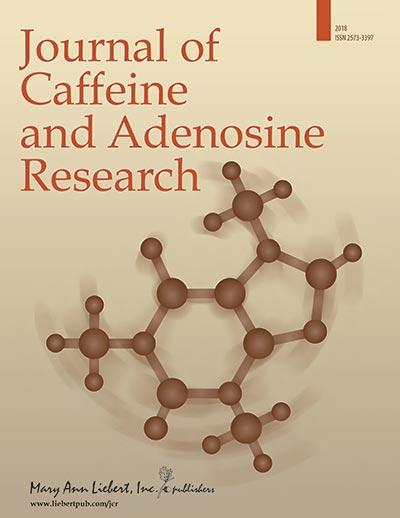
Credit: Mary Ann Liebert, Inc., publishers
New Rochelle, NY, January 7, 2019-An important new article reviews recently discovered properties of adenosine A2A receptor-dopamine D2 receptor (A2AR-D2R) and adenosine A1 receptor-dopamine D1 receptor (A1R-D1R) heteromers–both of which are main targets for caffeine–and discusses the therapeutic implications of these findings. Preclinical evidence is reviewed which indicates that caffeine and selective A2AR antagonists could be used to treat the motivational symptoms of depression as well as cognitive and emotional impairments in attention-deficit/hyperactivity disorder. In addition, new research suggests that the A1R-D1R heteromer, which modulates the excitability of the spinal motoneuron, could be targeted by A1R antagonists to therapeutic effect in spinal cord injury. Caffeine and selective adenosine receptor antagonists as potential new therapeutic tools are discussed in an article published in Journal of Caffeine and Adenosine Research, a peer-reviewed journal from Mary Ann Liebert, Inc., publishers. Click here to read the article free on the Journal of Caffeine and Adenosine Research website.
###
The article, entitled “New Developments on the Adenosine Mechanisms of the Central Effects of Caffeine and Their Implications for Neuropsychiatric Disorders,” is part of a series of reviews from a symposium on caffeine and adenosine presented at the meeting “Purines 2018 International,” in Foz do Iguaçu, Brazil. Groundbreaking findings regarding caffeine and adenosine-dopamine receptor heteromers are reviewed by Sergi Ferré, MD, PhD, National Institute on Drug Abuse, National Institutes of Health (Baltimore, MD) and colleagues from the University of Puerto Rico (San Juan), the University of Connecticut (Storrs), and the Federal University of Santa Catarina (Florianópolis, Brazil).
About the Journal
Journal of Caffeine and Adenosine Research is an authoritative peer-reviewed journal published quarterly online with Open Access options and in print that explores the rapidly advancing field of caffeine and adenosine signaling research. Led by Sergi Ferré, MD, PhD, Integrative Neurobiology Section, National Institute on Drug Abuse, IRP, NIH, DHHS, Baltimore, MD, the Journal addresses the need for an authoritative multidisciplinary source on caffeine and adenosine’s role in biological processes. Complete tables of contents and a sample issue may be viewed on the Journal of Caffeine and Adenosine Research website.
About the Publisher
Mary Ann Liebert, Inc., publishers is a privately held, fully integrated media company known for establishing authoritative peer-reviewed journals in many promising areas of science and biomedical research, including Cannabis and Cannabinoid Research, Journal of Medicinal Food, and Journal of Women’s Health. Its biotechnology trade magazine, GEN (Genetic Engineering & Biotechnology News), was the first in its field and is today the industry’s most widely read publication worldwide. A complete list of the firm’s 80 journals, books, and newsmagazines is available on the Mary Ann Liebert, Inc., publishers website.
Media Contact
Kathryn Ryan
[email protected]
914-740-2250
Original Source
https:/
Related Journal Article
http://dx.




